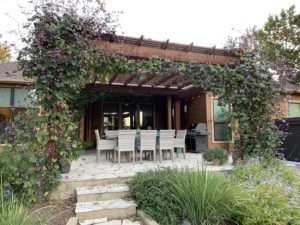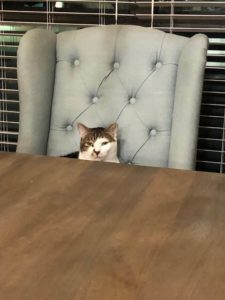The Planning Begins
Our conversations get interesting!
By early February 2020, Phil was almost fully on board; his only stipulation was that we not immediately sell the house. We love our little house in the Texas Hill Country, with its art studio in the backyard and my beautiful garden. And being only a half hour away from our Texas kids, we were well settled. I had to agree with Phil that renting our house for the first year would give us a soft landing if we found that the roaming life didn’t suit us. That decision tentatively made, we began seriously exploring options and planning for real.

I was still reading Lynne Martin’sbook aloud, and Phil was enthusiastic. Our reading led to many interesting conversations, such as:
- I’m the planner in the family, arranging most of our trips, social engagements, budget, etc. Phil is the one who forces me to slow down and consider more options, really think things through, and be more thorough. He also is passionate about art and history, and he has dragged enticed me to museums and galleries I wouldn’t have seen on my own. We agreed that we’d rely on each other’s strengths to make this work.
- We agreed to start with places where we’re comfortable, then gradually become more adventurous. So perhaps we’ll start with France, Italy, and the UK (our daughter and son-in-law live in Europe), and as we sharpen our roaming skills we’ll travel to places where less English is spoken and the cultures are more diverse.
- Phil is an artist, primarily focused on landscapes. We’ll have to figure out how he can adapt his painting style to life on the road, without the sophisticated equipment he relies on to transform photos into ready-to-paint sketches on canvas. For me, aside from this blog, my “career” will be organizing our adventures as the family travel agent.
 Phil’s painting of a creek near where we live
Phil’s painting of a creek near where we live
- We have moved 16 times in our 38 years of marriage, including going from 3600 square feet down to 1600, so we know how to downsize. We have given our kids (ok, persuaded them to take) furniture, dishes, décor, art, and memorabilia, and I’m frankly surprised the IRS hasn’t investigated us because we’ve donated so many things to charity over the years. But still we have a LOT of stuff. I’m ruthless about getting rid of stuff that we no longer need or love, especially after being inspired by Marie Kondo. But this is different. We’re looking at getting rid of everything we can and moving all the rest into a storage unit. Over the past couple of weeks one of us will say, “I could never part with our dining table,” or “Could you live without your Wustoff knives?” or “What would I do with all the stuff in my studio?” And let’s not even talk about the books. I have over 300 cookbooks and even more fiction, poetry, and nonfiction.
- How will we know whether we have enough money? We had already decided to spend 2020 living at or below the amount we expect to have in retirement, as a test. In January we spent about half what we spent in December, and we’re on a similar track for February, so it’s looking good so far. And now we have even more motivation to save. One recent Saturday after seeing a movie complete with adult beverages and snacks, we nixed our dining out plans to eat at home, and every time I think of buying something I think, “We’d just have to get rid of it in two years, so why buy it?”
Regardless whether we end up as roaming retirees, this exercise is changing us, making our conversations more impactful and weightier—and more fun. When I worked at a community mental health center many years ago, one of our consultants told us “Every couple needs a baby. Not necessarily a human child, but some creative project they can share.” Have we found our next baby?



